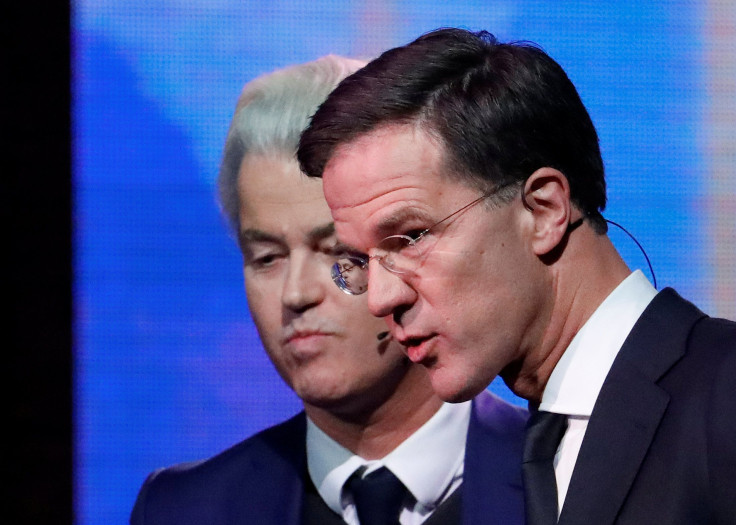Dutch Election Polls, Date, Guide: Geert Wilders Seeks To Become Netherlands Prime Minister

The Dutch general election will take place Wednesday, with the polls suggesting that anti-Islamic populist Geert Wilders remained firmly in the running to become the Netherlands’ next prime minister. The vote, however, has a significance that goes beyond the Netherlands’ borders.
The famously liberal hotbed in northern Europe has long been seen as something of a testing ground for whether a far-right populist surge that sprung up last year will dominate the continent in 2017. Later in the year, two more countries to have seen a populist uprising, France and Germany, will also face crucial elections.
Wilders has been one of the leading beneficiaries of the anti-establishment swing. His Party for Freedom (PVV) has emerged from the fringes of Dutch politics and a distant third-place in the last election in 2012 to leading the opinion polls for much of the past 18 months.
Frequently rallying against Islam and immigrants, he has called for the banning of the Quran and the shuttering of all mosques as well as for the Netherlands to leave the European Union. His campaign emerged undeterred from a conviction for inciting discrimination in December after he led an anti-Moroccan chant at a rally.
However, in the last week of the campaign the race, as indicated by the polls at least, has tightened. Indeed, the most recent polls have shown the right-wing People’s Party of Freedom and Democracy (VVD) of current Prime Minister Mark Rutte leading the way.
But it is far from a simple two-way battle. The center-right Christian Democratic Appeal (CDA) of Sybrand van Haersma Buma has been shown to be almost even with front-runners, garnering around 22 of the 150 seats in the Dutch parliament.
The left-wing Greens, led by 33-year-old Jesse Klaver of Moroccan, Dutch and Indonesian descent, have also gained significant strength. Major ground, too, has been made up by the Democrats 66 (D66), which has called for legalizing the production of marijuana.
The already dramatic campaign, which also saw Wilders temporarily suspend his campaign last month over a security leak, took another twist in its final days. A diplomatic showdown with Turkey led to Rutte refusing to allow the country’s foreign minister to land in the Netherlands and Turkey’s family affairs minister to enter the Turkish consulate in Rotterdam. Protests broke out in Rotterdam, where those waving Turkish flags clashed with riot police.
One of the big questions going into the vote is whether the scenes of protest will count in favor of Wilders or whether Rutte’s tough stance will earn him last-minute support.
While results will be announced overnight following the vote Wednesday, the identity of the next government is unlikely to be known for some time. A coalition of four or perhaps even five, parties is likely to be needed in order to get a majority in parliament.
It is on that basis that Wilders’ path to becoming prime minister is far from a straightforward one. Rutte has insisted his party will not enter into a coalition with Wilders, while most of the other parties, if not as vehemently, have made similar statements.
© Copyright IBTimes 2024. All rights reserved.





















